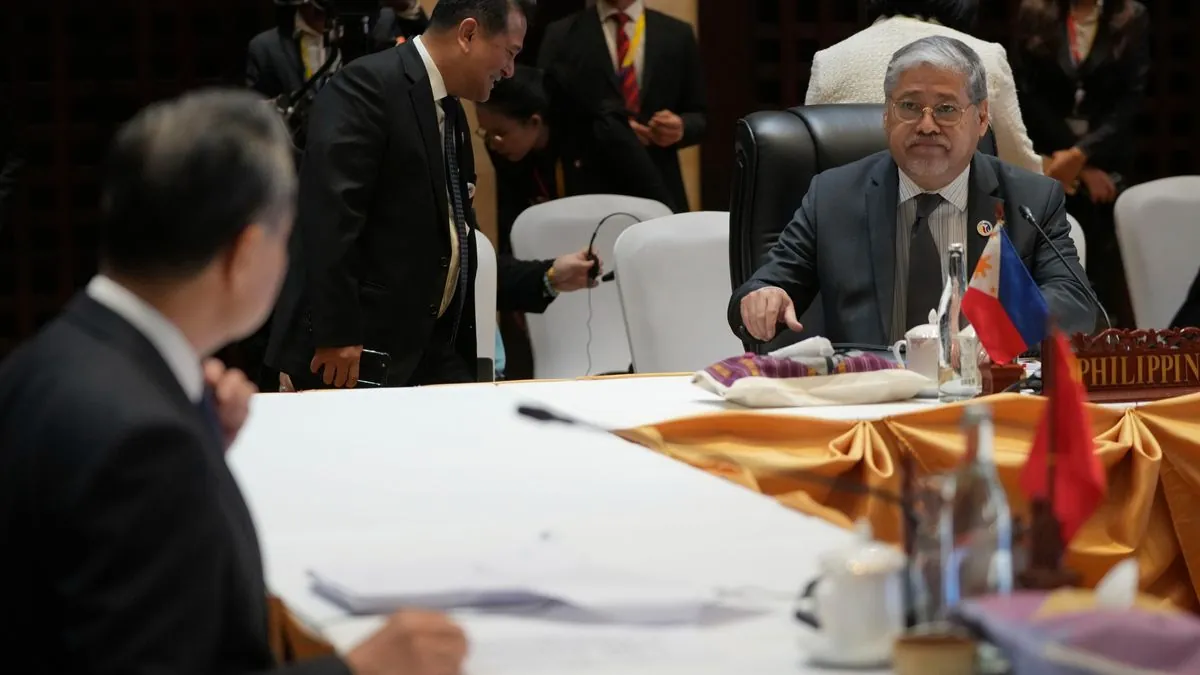Philippines and China Hold Talks Amid South China Sea Tensions
Philippines and China engage in bilateral discussions to address South China Sea disputes. Both nations agree to explore cooperation while maintaining their respective positions on territorial claims.

The Philippines and China conducted bilateral talks on September 11, 2024, focusing on reducing tensions in the South China Sea while maintaining their respective positions. The discussions, described as "frank" by both parties, addressed recent incidents and explored potential areas of cooperation.
Manila reaffirmed its stance on Sabina Shoal, where tensions have escalated due to recent vessel incidents. The Philippine coast guard has maintained a presence in the area since mid-April 2024, with its vessel Theresa Magbanua anchored on suspicion of Chinese reclamation activities.
The South China Sea, covering approximately 3.5 million square kilometers, has been a hotbed of territorial disputes. China claims sovereignty over most of the region, conflicting with the maritime zones of the Philippines, Vietnam, Malaysia, Indonesia, and Brunei. This area is crucial for global trade, with an estimated $3.37 trillion worth of goods passing through annually.
During the talks, both nations agreed to continue discussions on:
- Hotline mechanisms
- Coast guard cooperation
- Marine scientific and technological collaboration
These efforts aim to mitigate tensions and foster a more stable regional environment.
The recent negotiations follow a previous round of talks in July 2024, which resulted in a "provisional arrangement" for resupply missions to Philippine soldiers stationed on a beached naval vessel in Second Thomas Shoal.
"China reiterates its demand for the immediate withdrawal of a Philippine vessel and vows to firmly uphold its sovereignty."
It's important to note that a 2016 arbitral tribunal award voided China's expansive historical claims in the South China Sea. However, Beijing has consistently rejected this decision. The ruling was based on the United Nations Convention on the Law of the Sea (UNCLOS), which was signed in 1982 and came into force in 1994.
The South China Sea's significance extends beyond territorial claims. It is home to over 3,000 fish species and provides food security for millions in Southeast Asia. Additionally, the region is estimated to hold 11 billion barrels of oil and 190 trillion cubic feet of natural gas, further intensifying the stakes in these disputes.
As tensions persist, the Association of Southeast Asian Nations (ASEAN) continues its efforts to establish a Code of Conduct for the South China Sea, a process that began in 2002. This ongoing diplomatic challenge underscores the complexity of balancing national interests with regional stability in one of the world's most strategically important waterways.


































